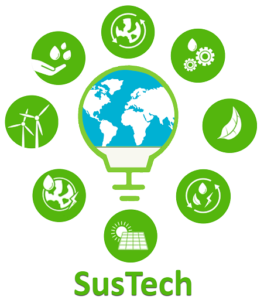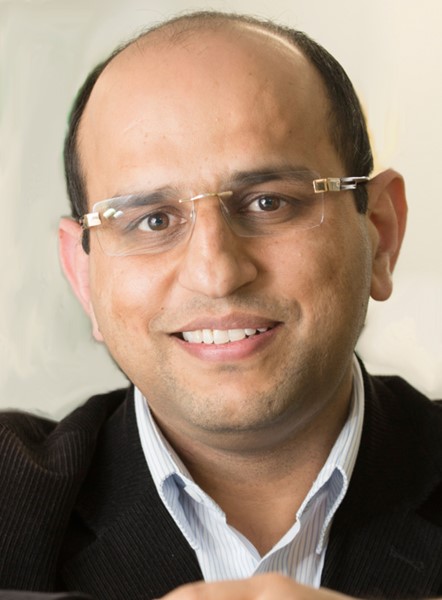SusTech Talk: Sustainable ICT Technologies

Presented by Ravinder Dahiya, Bendable Electronics and Sensing Technologies (BEST) Group, James Watt School of Engineering, University of Glasgow, G12 8QQ, UK
The miniaturization led advances in electronics during the last half century have revolutionized our lives through high-speed computing, communication and digital technologies which touch our life in almost all traditional sectors today (e.g., health, aerospace, manufacturing, and retail etc.). Yet, as revolutionary as micro/nanoelectronics technology has been, in its current form, it is not sustainable and also leading to issues such as electronic waste. Further, current production processes for are inherently and unavoidably wasteful. For example, integrated circuits (IC) fabs rely almost entirely on subtractive manufacturing methods, leading to large material wastages. Further, these fabs require vast quantities of water, energy, and land and there is considerable adverse environmental impact. Clearly, there is a need for new resource efficient and environment friendly routes for electronics manufacturing and ICT systems. Today electronics are omnipresent, and the process follows a top-down flow. In the future a bottoms up flow will lead to a more sustainable process. This talk will discuss the current model for sustainable electronics, and propose better models for the future. The talk will cover the magnitude of e-waste, the ICT Footprint, Sustainable Technologies, and circular electronics.
Date and Time
Location
Hosts
Registration
-
 Add Event to Calendar
Add Event to Calendar
Loading virtual attendance info...
Speakers
 Ravinder
Ravinder
Sustainable ICT Technologies
The miniaturization led advances in electronics during the last half century have revolutionized our lives through high-speed computing, communication and digital technologies which touch our life in almost all traditional sectors today (e.g., health, aerospace, manufacturing, and retail etc.). Yet, as revolutionary as micro/nanoelectronics technology has been, in its current form, it is not sustainable and also leading to issues such as electronic waste. Further, current production processes for are inherently and unavoidably wasteful. For example, integrated circuits (IC) fabs rely almost entirely on subtractive manufacturing methods, leading to large material wastages. Further, these fabs require vast quantities of water, energy, and land and there is considerable adverse environmental impact. Clearly, there is a need for new resource efficient and environment friendly routes for electronics manufacturing and ICT systems. Today electronics are omnipresent, and the process follows a top-down flow. In the future a bottoms up flow will lead to a more sustainable process. This talk will discuss the current model for sustainable electronics, and propose better models for the future. The talk will cover the magnitude of e-waste, the ICT Footprint, Sustainable Technologies, and circular electronics.
Biography:
Ravinder Dahiya is Professor of Electronics and Nanoengineering and EPSRC Research Fellow in the James Watt School of Engineering at University of Glasgow. His multidisciplinary research group (Bendable Electronics and Sensing Technologies (BEST) group) conducts fundamental research in flexible printed electronics and electronic/tactile skin, and applies these technologies to advance research in robotics, wearables, augmented/virtual and similar interactive systems. He has authored or co-authored more than 450 publications, books and submitted/granted patents and disclosures. He has led or contributed to many international projects.
Prof. Dahiya is President of IEEE Sensors Council. He is the Founding Editor-in-Chief of IEEE Journal on Flexible Electronics (J-FLEX). He is the founder of the IEEE International Conference on Flexible Printable Sensors and Systems (IEEE FLEPS). Prof. Dahiya has received several awards, including Technical Achievement award from IEEE Sensors Council, Young Investigator Award from Elsevier, Marie Curie Fellowship, Monbusho Fellowship, and 12 best journal/conference paper awards as author/co-author. He is Fellow of IEEE and the Royal Society of Edinburgh.
Web: www.rsdahiya.com
Agenda
Talk will start at Noon Pacific time so that we can accomodate the speaker who is in Glasgow Scotland

